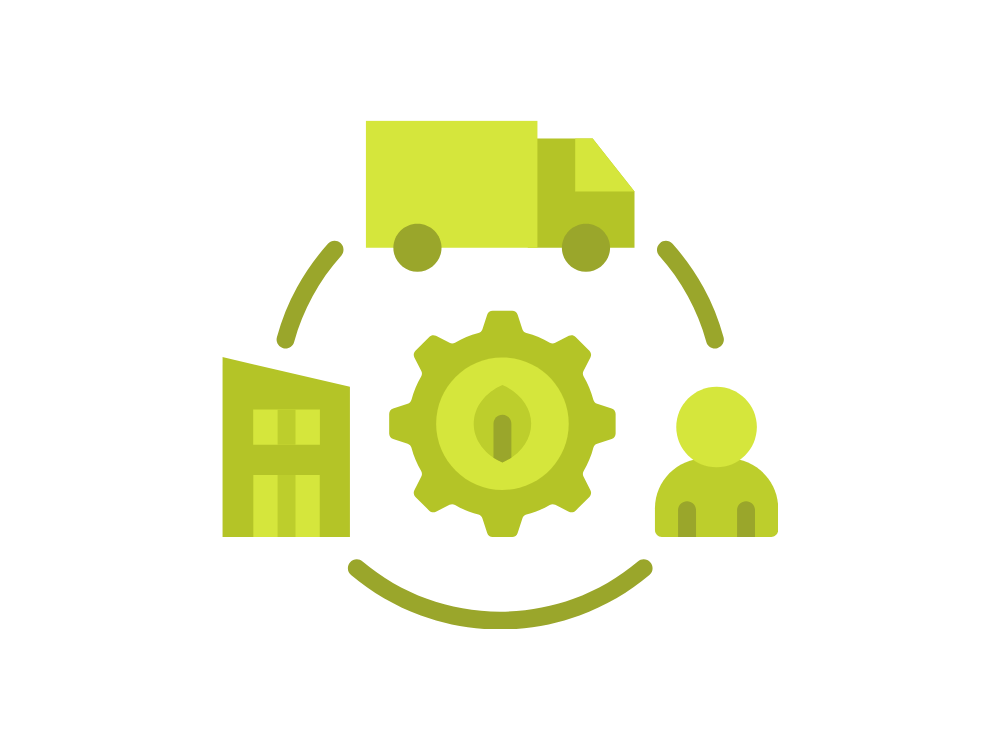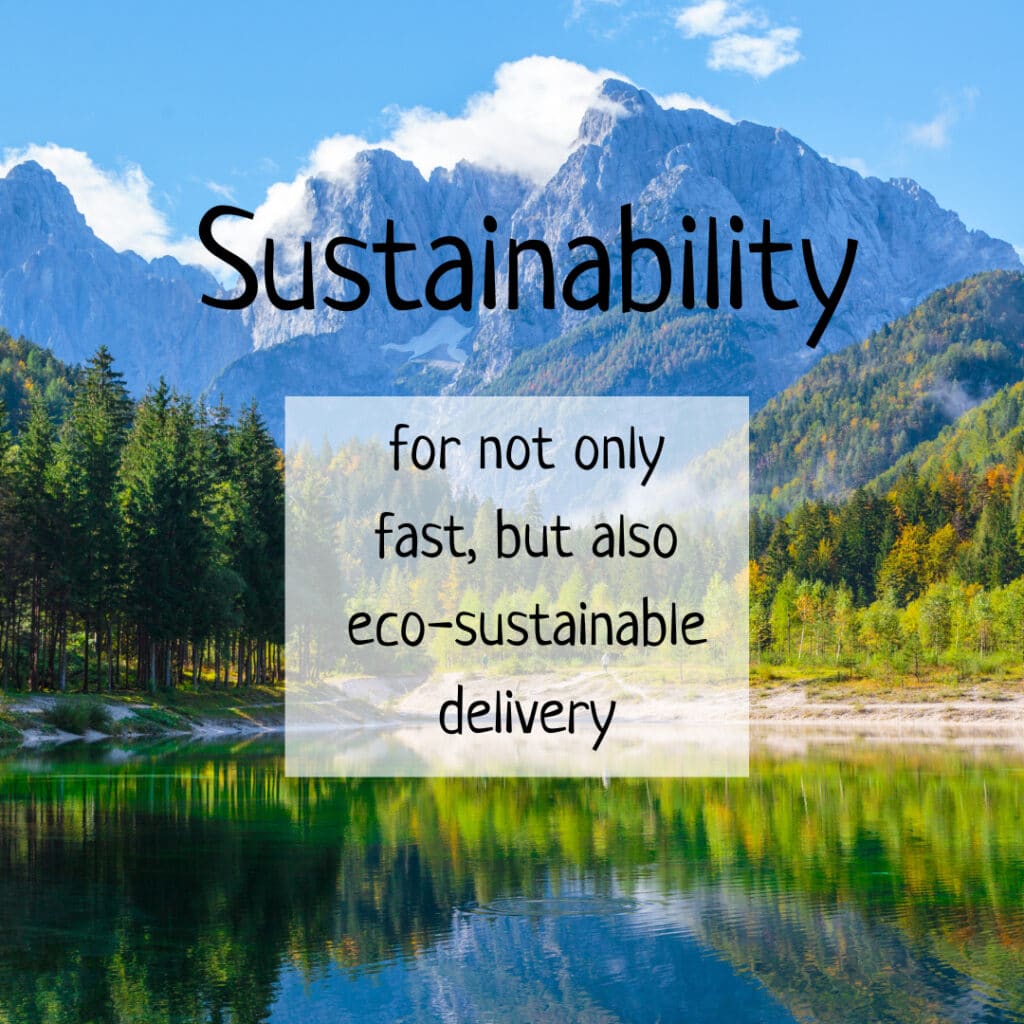Logistics, understood as all activities that regulate the transport, distribution and handling of goods, has a significant impact on the environment. CO2 emissions, fossil fuel consumption and packaging waste generation are just some of the critical issues in this sector. However, more and more companies are adopting sustainable practices in logistics to reduce their ecological footprint and contribute to the transition to a greener economy. But what are sustainable practices? And what is sustainable logistics? In this article we explore the main actions taken to combine efficiency and environmental responsibility.
Summary:
Sustainable practices in logistics: towards a green future
What is sustainable logistics and why it is crucial today
What sustainable practices are and what benefits they bring
How can technology contribute to the sustainability of logistics?
Sustainable practices in logistics and transport: concrete examples
Green logistic and emission impact reduction
Transport digitisation and sustainable practices in logistics
Ecological packaging and sustainability in logistics
Sinergy Solution’s commitment to sustainability in logistics
What is sustainable logistics and why it is crucial today
Sustainable logistics, or green transport, represents an integrated approach to logistics management that takes into account the environmental, social and economic impact of each stage of the supply chain. It is not only about reducing greenhouse gas emissions, but also optimising the use of resources, improving energy efficiency and promoting virtuous behaviour throughout the supply chain.
In the current context of heightened environmental awareness and increasingly stringent regulations, adopting sustainability practices in logistics has become an imperative. Companies that invest in this direction not only reduce their environmental impact, but also increase their competitiveness, meeting the expectations of customers, partners and stakeholders.
Efficiency and sustainability are no longer in opposition. Today, technologies and process innovations make it possible to achieve both goals simultaneously, helping to transform the logistics industry into an engine of positive change.
What sustainable practices are and what benefits they bring
Before analysing specifically sustainable practices in logistics and transport, it is useful to clarify the more general concept of sustainable practices. This expression refers to all those actions, processes or strategies that aim to satisfy the needs of the present without compromising the ability of future generations to satisfy their own. When applied to the logistics sector, these practices translate into operational and management choices oriented towards environmental sustainability, waste reduction and resource efficiency.
What are examples of sustainable activities in logistics? We can mention a few:
- Optimising delivery routes to reduce emissions
- Adoption of recyclable or reusable packaging
- Digitising processes to minimise paper use
- Warehouse management with intelligent energy-saving systems
The benefits are tangible: reduced operating costs, improved corporate reputation, retention of environmentally conscious customers and access to public incentives. Companies that adopt logistics sustainability strategies build a solid and lasting competitive advantage.
How can technology contribute to the sustainability of logistics?
One of the main drivers of low-impact logistics is undoubtedly technology. From automation to digitisation and the intelligent use of data, technological innovations help improve the environmental performance of the entire logistics chain.
Among the most effective tools are:
- Route optimisation software: reduce kilometres travelled, cut fuel consumption and ensure faster deliveries.
- IoT (Internet of Things) systems: sensors and connected devices monitor the condition of vehicles, warehouses and goods, improving efficiency and preventing waste.
- Warehouse automation solutions: reduce energy consumption and improve inventory management accuracy.
- Blockchain: promotes traceability and transparency of sustainability practices adopted by each actor in the supply chain.
How can technology contribute to sustainable logistics? By optimising each process step, reducing inefficiencies and facilitating the collection of useful data to continuously improve environmental performance.
Sustainable practices in logistics and transport: concrete examples
Applying sustainable practices in the logistics sector does not only mean investing in major structural changes. Even small measures, if well planned, can generate a positive impact. Here are some examples.
Green logistic and emission impact reduction
By adopting a logic of route optimisation and dynamic load management, distances and, therefore, emissions can be kept to a minimum. In addition, paying particular attention to efficiency in the management of vehicles allows maximum logistical performance with the lowest possible impact.
These solutions do not necessarily require an investment in new equipment, but are based on service intelligence and strategic business planning.
Transport digitisation and sustainable practices in logistics
The management of delivery flows through advanced software allows for fewer empty trips, optimised loads and a dynamic response to customer needs. This approach improves the overall efficiency of the logistics system and fits in perfectly with the main sustainable practices in logistics, thanks also to the use of technology for reduced environmental impact.
Sinergy Solution’s commitment to sustainability in logistics
In an ever-changing landscape, Sinergy Solution stands out for its concrete and transparent approach to sustainability in logistics. The company has obtained EcoVadis certification, which assesses the impact of companies in environmental, social and ethical terms. This recognition attests to its ongoing commitment to sustainable logistics, combining innovation, responsibility and tangible results.
Among the actions implemented by Sinergy Solution are:
- Internal awareness-raising activities to promote a culture of sustainability.
- Use of technologies for consumption control and process traceability.
If you are an environmentally aware company and want to integrate sustainable practices into your logistics, contact us! We will help you develop tailor-made, effective and sustainable solutions to accompany your company towards a greener future.



